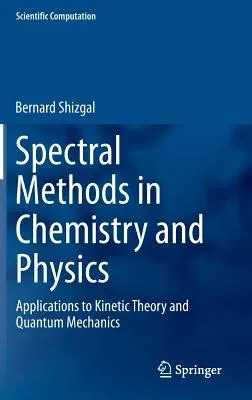This book is a pedagogical presentation of the application of spectral
and pseudospectral methods to kinetic theory and quantum mechanics.
There are additional applications to astrophysics, engineering, biology
and many other fields. The main objective of this book is to provide the
basic concepts to enable the use of spectral and pseudospectral methods
to solve problems in diverse fields of interest and to a wide audience.
While spectral methods are generally based on Fourier Series or
Chebychev polynomials, non-classical polynomials and associated
quadratures are used for many of the applications presented in the book.
Fourier series methods are summarized with a discussion of the
resolution of the Gibbs phenomenon. Classical and non-classical
quadratures are used for the evaluation of integrals in reaction
dynamics including nuclear fusion, radial integrals in density
functional theory, in elastic scattering theory and other applications.
The subject matter includes the calculation of transport coefficients in
gases and other gas dynamical problems based on spectral and
pseudospectral solutions of the Boltzmann equation. Radiative transfer
in astrophysics and atmospheric science, and applications to space
physics are discussed. The relaxation of initial non-equilibrium
distributions to equilibrium for several different systems is studied
with the Boltzmann and Fokker-Planck equations.
The eigenvalue spectra of the linear operators in the Boltzmann,
Fokker-Planck and Schrödinger equations are studied with spectral and
pseudospectral methods based on non-classical orthogonal polynomials.
The numerical methods referred to as the Discrete Ordinate Method,
Differential Quadrature, the Quadrature Discretization Method, the
Discrete Variable Representation, the Lagrange Mesh Method, and others
are discussed and compared.
MATLAB codes are provided for most of the numerical results reported in
the book - see Link under 'Additional Information' on the the right-hand
column.

